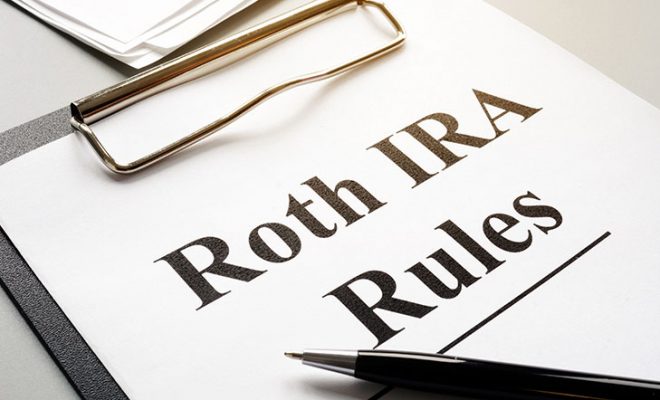5 Reasons Why You Should Not Revise the Asset Allocation of Your Retirement Funds

Retirement planning can involve various types of strategies, approaches, funds, and accounts. The level of diversification and risk depends on each individual based on factors such as income, age, family composition, time left to retire, lifestyle, etc. However, while everyone’s retirement plan differs by varying degrees, there is one aspect that remains the same. As you approach retirement, financial experts often suggest keeping your retirement funds untouched. The closer you are to retirement, the less time you have to compensate for any abrupt choices and possible losses. Hence, revising the asset allocation of your retirement funds is largely discouraged.
Asset allocation refers to investing money in different asset classes, such as stocks, bonds, real estate, mutual funds, index funds, etc. Your asset allocation can be determined based on your risk tolerance, income, future goals, and financial responsibilities. An asset allocation strategy helps you balance the risk and reward on your portfolio by investing in the chosen asset classes.
When it comes to retirement, reevaluating your strategy can be a complex task, one that can harm your portfolio. Here are 5 reasons why you should not revise the asset allocation of your retirement funds:
- Portfolio rebalancing can lead to lossesRevisiting your asset allocation is a good way to keep your investments in check. However, overdoing portfolio rebalancing can sometimes lead to long term losses. The costs associated with rebalancing your asset allocations, such as taxes and transaction costs, can overrule the returns from your investment. This can prove to be a costly and time-consuming task in general. In addition to this, portfolio rebalancing refers to readjusting the distribution of stocks and bonds on your portfolio. This can sometimes result in cutting down stocks that may have performed well in the past just to attain the desired asset allocation.For instance, if your stocks constitute 70% of your portfolio, you may decide to cut it down to 60% when you revise your asset allocation strategy. But this also implies that 10% of those well performing stocks are now out of your portfolio and are replaced by bonds that may or may not harvest the same returns.
- Revising your asset allocation right before retirement is risky
Timelines play a crucial role when it comes to retirement planning. Since retirement is a time where it is likely that you have no source of active income and have to depend on your passive income sources, such as returns from investments, savings, rent from a leased property, etc., the scope for taking risks is rather low. Revising your asset allocation too close to retirement or even post-retirement can be a tricky activity that may go against you. There is always some element of risk involved in investing, however, if you take this risk early on in your life and career, you have ample time to make up for the losses. But, as you age, your responsibilities increase and the time left to retire reduces. Suffering a loss due to an incorrect asset allocation strategy can contribute to significant financial setbacks. It can be challenging and sometimes impossible to recover these losses in such a short span of time. This can greatly affect your retirement life and affect your family members too. - Eliminating all stocks in retirement can negatively impact you
A lot of investors like to opt for safer bets in retirement. As stated above, even a small loss in retirement can be hard to cover with limited resources and time at hand. This is one of the reasons why many people start reducing stocks from their portfolio as they grow older. While it is a good idea to include safer investment tools such as bonds to your retirement portfolio, rebalancing your portfolio and removing all stocks can also be detrimental to your future goals. Stocks do fall under more aggressive investment choices with a high degree of risk, but the rewards are equally high. They can help your portfolio garner better rewards that can keep you afloat in the face of any unexpected financial adversity. This is why it may be advised to keep a balance of stocks and bonds in your retirement portfolio.While the precise composition of stocks and bonds can be different for each individual, a commonly followed rule is the 110 rule. As per this rule, the difference of your age from the number 110 can be the ideal percentage of stocks on your portfolio in retirement. So, if you are 65, you can aim to have at least (110 – 65) 45% stocks in your investment portfolio. - Revising asset allocation can lead to over diversification
Retirement can be a challenging transition for some people. The emotional and financial implications of retirement are quite substantial. This can encourage you to take drastic steps like over diversifying your portfolio. With an impending retirement, diversification may seem like the best way to cut down your risk and improve your rewards. However, it can be difficult to gauge when and where to stop. Going overboard with diversification can have the same pitfalls as under diversification. Therefore, it helps to not revisit your asset allocation at this time as it can result in emotionally driven decisions. It may also be advisable to consult a financial advisor to understand the best asset allocation approaches. - It pays off to lie low and not meddle too much
In essence, asset allocation is not something that you need to take up very often. The primary principle of asset allocation revolves around understanding your risk appetite and reflecting the same in your choice of investments. Constant revision of your asset allocation strategy can have little to no positive effect on your overall returns. Instead, it can eat away your time and result in taxes and transaction costs. It can be more beneficial to implement a sound strategy with the help of your advisor and sit back and relax, while watching your money grow over the years.
To sum it up
Retirement should be a time with little financial stress, no work hassles and should be spent just living your retirement dreams. However, the choices you make through your life influences how your retirement pans out. Devising an efficient asset allocation strategy is one such crucial choice that you need to make before you retire. While it may seem a bit daunting, the right guidance and assistance can help you achieve the desired outcome on your portfolio. It helps to have a clear understanding of your goals and align them with your risk appetite.
If you need help in retirement planning, you can contact a professional financial advisor in your area.









